What is the Purpose of Aromatherapy
Why aromatherapy is done – Are you curious about the world of aromatherapy and how it can benefit your overall well-being?
We will explore the fundamentals of aromatherapy, including how it works and the different types of essential oils used. Discover the potential benefits of aromatherapy, from reducing stress and anxiety to improving sleep quality.
We will also cover safety precautions and how to incorporate aromatherapy into your daily routine.
Learn more about this natural and holistic approach to health and wellness.
Key Takeaways:
What is Aromatherapy?
Aromatherapy is a holistic therapy that utilizes plant extracts to promote health and well-being. It involves the use of essential oils derived from various plants to enhance physical and psychological health.
Originating centuries ago, the practice of aromatherapy can be traced back to ancient civilizations like Egypt, where fragrant oils were used for medicinal and ritualistic purposes. The fundamental principle of aromatherapy lies in the belief that the inhalation or topical application of these aromatic oils can stimulate the olfactory system, triggering specific reactions in the body.
Essential oils are carefully extracted from plants through methods like distillation or cold pressing to retain their therapeutic properties. Each oil carries distinct characteristics and benefits, with popular choices including lavender for relaxation, peppermint for invigoration, and tea tree for its antiseptic properties.
How Does Aromatherapy Work?
Aromatherapy works by stimulating the olfactory system, which then sends signals to the brain, triggering various effects on the body. Research suggests that certain essential oils can impact mood, cognition, and even physiological functions.
What Are Essential Oils?
Essential oils are concentrated extracts derived from plants that contain aromatic compounds. These oils are often extracted through distillation or cold pressing, retaining the plant’s natural chemicals and fragrances.
Each essential oil has a unique chemical composition that contributes to its specific properties and benefits. For example, lavender essential oil is known for its calming effects due to its high content of linalool and linalyl acetate. These compounds interact with the central nervous system, promoting relaxation and reducing stress.
Why do we use aromatherapy? Other popular essential oils such as peppermint, eucalyptus, and tea tree are valued for their anti-inflammatory, antiseptic, and immune-boosting properties.
The diverse range of plant sources used for essential oil extraction includes flowers, leaves, bark, roots, and seeds, each providing unique aromatic profiles and therapeutic benefits.
How Are Essential Oils Used in Aromatherapy?
Essential oils are used in aromatherapy through various methods such as diffusion, topical application, or inhalation.
Aromatherapy practitioners often create custom blends by combining different essential oils with specific therapeutic properties to address physical, emotional, and mental well-being.
They carefully consider the unique characteristics of each oil, such as its scent, viscosity, and potential interactions, to ensure a synergistic and effective blend.
What Are the Benefits of Aromatherapy?
Aromatherapy offers a wide range of benefits for both physical and emotional well-being. From improving skin conditions to alleviating stress and pain, aromatherapy is known for its therapeutic effects on various health issues.
One of the key advantages of aromatherapy lies in its ability to enhance the skin’s health. Essential oils like lavender, tea tree, and chamomile have anti-inflammatory and antimicrobial properties that can help combat acne, eczema, and other skin conditions. The gentle application of these oils can soothe irritation, promote healing, and rejuvenate the skin, providing a natural and fragrant skincare solution.
Reduces Stress and Anxiety
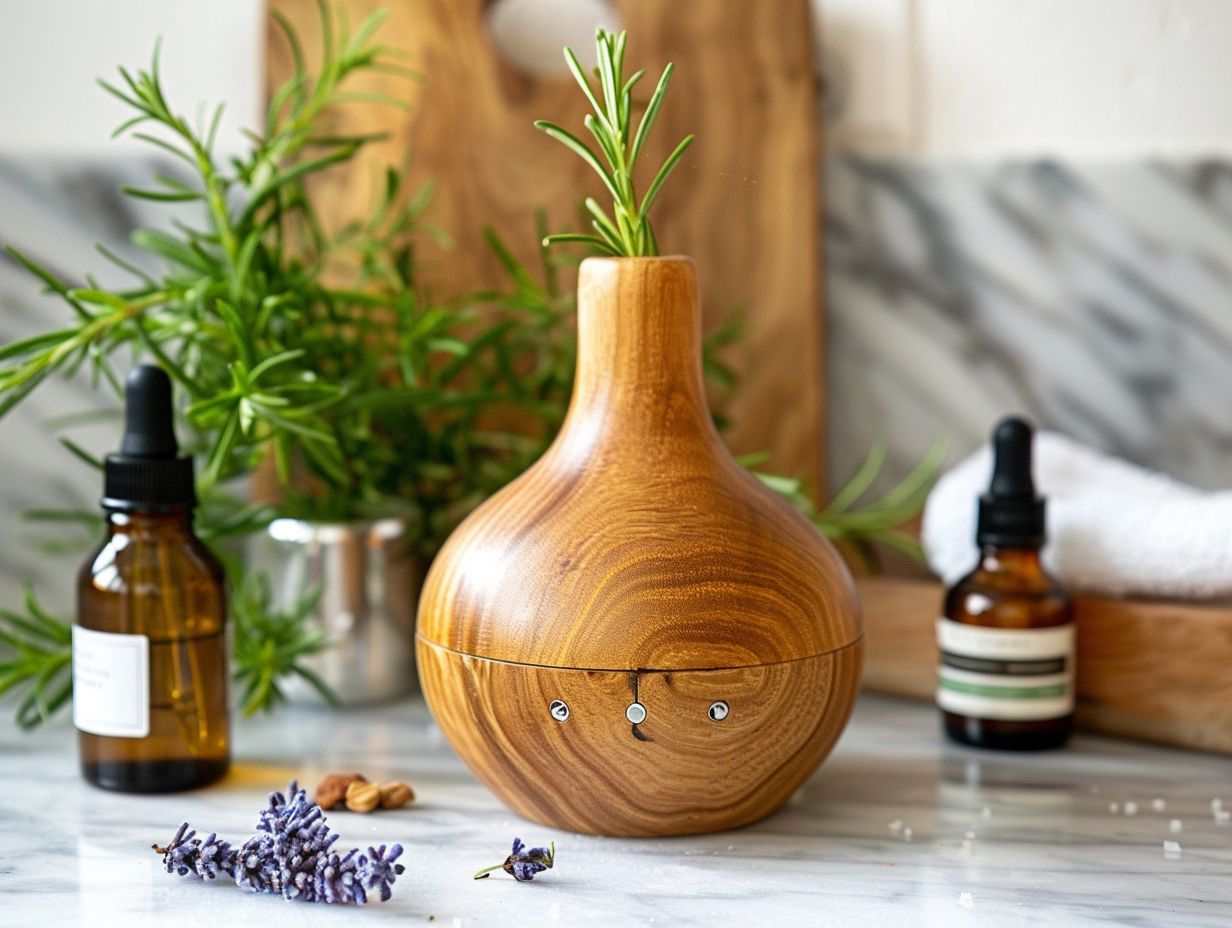
Lavender essential oil is commonly used to alleviate stress and anxiety due to its soothing properties. Research studies have shown that inhaling lavender oil can reduce cortisol levels, known as the stress hormone, leading to a more relaxed state. Similarly, Frankincense oil has been found to have anxiolytic effects, helping to ease anxious feelings and promote emotional balance. These oils can be diffused, applied topically, or added to bathwater for a calming aromatherapy experience.
Improves Sleep Quality
Aromatherapy is known to improve sleep quality by promoting relaxation and creating a conducive environment for rest. Certain essential oils can help regulate sleep patterns and enhance overall sleep quality.
One of the key ways in which aromatherapy aids in enhancing sleep quality is through its ability to calm the mind and body, reducing stress and anxiety levels that often interfere with falling and staying asleep. By inhaling the pleasant scents of essential oils, the olfactory system sends signals to the brain, triggering the release of neurotransmitters that promote relaxation and induce a state of tranquility.
Popular essential oils used for improving sleep include lavender, chamomile, and cedarwood, known for their soothing and sedative properties. These oils can be diffused in the bedroom, added to bathwater, or applied topically after dilution to promote a sense of calm and help establish a bedtime routine conducive to restful sleep.
Boosts Mood and Energy
Aromatherapy has mood-boosting effects that can enhance energy levels and overall well-being.
Certain essential oils, such as why aromatherapy is important, are known for their uplifting properties. When inhaled, these oils can stimulate the brain’s limbic system, which plays a key role in regulating emotions and influencing mood.
In addition, lavender and ylang ylang essential oils are popular choices for promoting relaxation and reducing stress, which can indirectly help improve energy levels by alleviating mental fatigue and promoting a sense of calm.
Relieves Pain and Inflammation
Aromatherapy can be used as a natural remedy to relieve pain and inflammation. Certain essential oils have analgesic and anti-inflammatory properties that help alleviate discomfort and promote healing.
One of the most popular essential oils for pain relief is lavender oil. Its calming scent can reduce stress, which in turn can lessen the perception of pain. Peppermint oil is another effective option, known for its cooling sensation that can numb the area of discomfort.
Additionally, eucalyptus oil is commonly used for its anti-inflammatory effects, reducing swelling and improving circulation in the affected area. Eucalyptus oil can also help ease muscle tension, making it beneficial for managing pain related to tension or stiffness.
What Are the Different Types of Aromatherapy?
Aromatherapy encompasses various types of approaches to promote health and well-being. These include topical aromatherapy, inhalation aromatherapy, and aerial aromatherapy, each with unique methods of application.
Topical aromatherapy involves the direct application of essential oils onto the skin, where they can be absorbed into the bloodstream through massage or baths. This method is commonly used for pain relief, skin conditions, and relaxation.
Inhalation aromatherapy utilizes the inhalation of essential oil vapors through diffusers, steam inhalation, or direct inhalation to benefit the respiratory system, mood enhancement, and stress reduction.
Aerial aromatherapy, also known as environmental fragrancing, disperses essential oils into the air using diffusers and sprays to create a soothing or invigorating atmosphere, aiding in emotional balance and mental clarity.
Topical Aromatherapy
Topical aromatherapy involves applying essential oils directly to the skin for absorption. This method is commonly used for skincare, massages, and localized treatment of specific conditions.
When absorbed into the skin, essential oils can bring a myriad of benefits. They possess properties that can nourish, hydrate, and rejuvenate the skin, making them a popular choice in natural skincare routines. Some of the most commonly used essential oils for topical aromatherapy include lavender, tea tree, and rosemary. Lavender is known for its calming and soothing effects, making it ideal for relaxing massages. Tea tree oil, with its antibacterial properties, is often used to combat acne and promote clear skin. Rosemary oil is popular for its stimulating and revitalizing qualities, making it a great addition to hair and scalp treatments.
Inhalation Aromatherapy
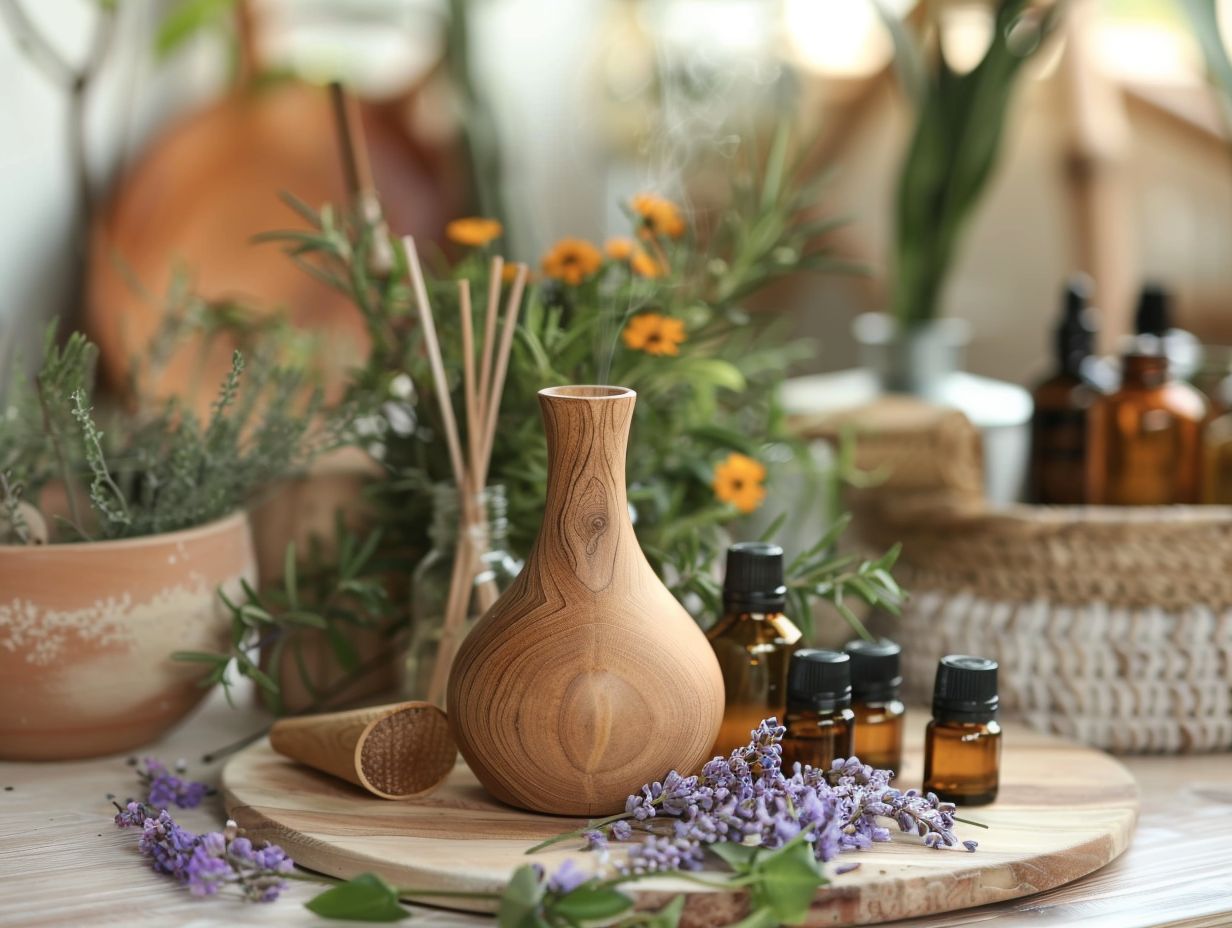
When inhaled, essential oils stimulate the olfactory receptors in the nose, sending chemical messages to the brain. These signals can trigger various responses, such as relaxation, improved mood, or even pain relief. The respiratory system directly benefits from the anti-inflammatory and antimicrobial properties of certain essential oils, which can help ease congestion, coughs, and respiratory infections.
The practice of inhaling essential oils is known to support overall respiratory wellness by promoting clearer airways and healthier breathing patterns. For individuals with conditions like asthma or allergies, certain essential oils can provide relief and aid in managing symptoms. It’s important to note that the effectiveness of inhalation aromatherapy may vary depending on the individual’s sensitivity to specific scents and oils.
Aerial Aromatherapy
Aerial aromatherapy involves diffusing essential oils into the air to create a therapeutic atmosphere. This method can influence the body and mind through inhalation of the aromatic molecules.
The practice of aerial aromatherapy has gained popularity for its ability to transform a space into a calming sanctuary. By dispersing essential oils such as lavender, peppermint, or eucalyptus through the air, individuals can experience a range of physical and mental benefits. These natural scents interact with the olfactory system, triggering responses in the brain that can promote relaxation, uplift mood, or even boost cognitive function. Aromatherapy has long been associated with enhancing the environment, whether it’s at home, in an office, or during a spa treatment.
Is Aromatherapy Safe?
Aromatherapy is generally considered safe when used appropriately, but there are potential risks associated with improper use or allergic reactions to certain oils. It is important to consult with a healthcare provider before incorporating aromatherapy into your routine.
Why aromatherapy is used is crucial, as healthcare experts can assess your individual health concerns and provide personalized recommendations for safe aromatherapy practices. Some essential oils may cause skin irritation, respiratory issues, or interact with medications, emphasizing the need for caution and knowledge.
Regulations set by the FDA aim to ensure the quality and safety of aromatherapy products, but consumers should still be vigilant and informed. Always perform a patch test before full-body application and dilute oils as directed to minimize adverse reactions.
What Are the Possible Side Effects of Aromatherapy?
While aromatherapy is generally safe, some individuals may experience side effects such as skin irritation, allergic reactions, or respiratory issues. People with certain medical conditions should exercise caution when using essential oils.
Those with asthma or chronic respiratory conditions should be particularly wary when using essential oils through aromatherapy, as inhaling certain scents can potentially trigger breathing difficulties. Skin irritation may manifest as redness, itching, or a rash, depending on individual sensitivities to specific oils. Allergic reactions can range from mild symptoms such as sneezing and watery eyes to more severe responses like swelling and difficulty breathing.
In case of adverse reactions, cease using the essential oil immediately and seek medical advice if symptoms persist or worsen. It’s crucial to perform a patch test before using any new oil, especially for those prone to skin sensitivities. Aromatherapy can interact with medications or exacerbate existing health conditions, such as high blood pressure or epilepsy, so it’s advisable to consult a healthcare provider before incorporating it into your wellness routine.
How Can Someone Incorporate Aromatherapy into Their Daily Routine?
Incorporating aromatherapy into your daily routine can be done through diffusers, topical applications, or adding essential oils to bath products. Creating personalized blends and using them consistently can enhance the benefits of aromatherapy.
For those looking to incorporate aromatherapy practices into their everyday lives, it’s important to consider the different ways essential oils can be seamlessly integrated.
- Through diffusers, individuals can enjoy the aromatic benefits of oils by simply adding a few drops to the water reservoir and allowing the calming scents to fill the room.
- Topical applications involve mixing essential oils with carrier oils and applying the blend to pulse points or areas of concern for a targeted therapeutic effect.
- Adding a few drops of essential oils to bath products like bath salts or bubble bath can turn an ordinary soak into a luxurious spa-like experience, promoting relaxation and rejuvenation.
What Are the Precautions to Take When Using Aromatherapy?
When using aromatherapy, it is essential to take precautions such as diluting essential oils, performing a patch test, and avoiding prolonged exposure. Following FDA guidelines and consulting with a practitioner can help mitigate potential risks.
Proper dilution of essential oils is crucial to prevent skin irritation and adverse reactions. To check for any sensitivities, a patch test should be conducted before widespread application of the oil. It is advisable to use a carrier oil like jojoba or coconut oil for dilution.
Avoiding prolonged exposure to highly concentrated oils is important for overall safety. Open ventilation during aromatherapy uses can help prevent inhalation of high concentrations that may cause respiratory issues or headaches.
Regulatory compliance plays a significant role in ensuring the quality and safety of essential oils. Always purchase oils from reputable sources that comply with FDA regulations to avoid counterfeit or adulterated products that may pose health risks.
Can Aromatherapy Be Used in Conjunction with Other Treatments?
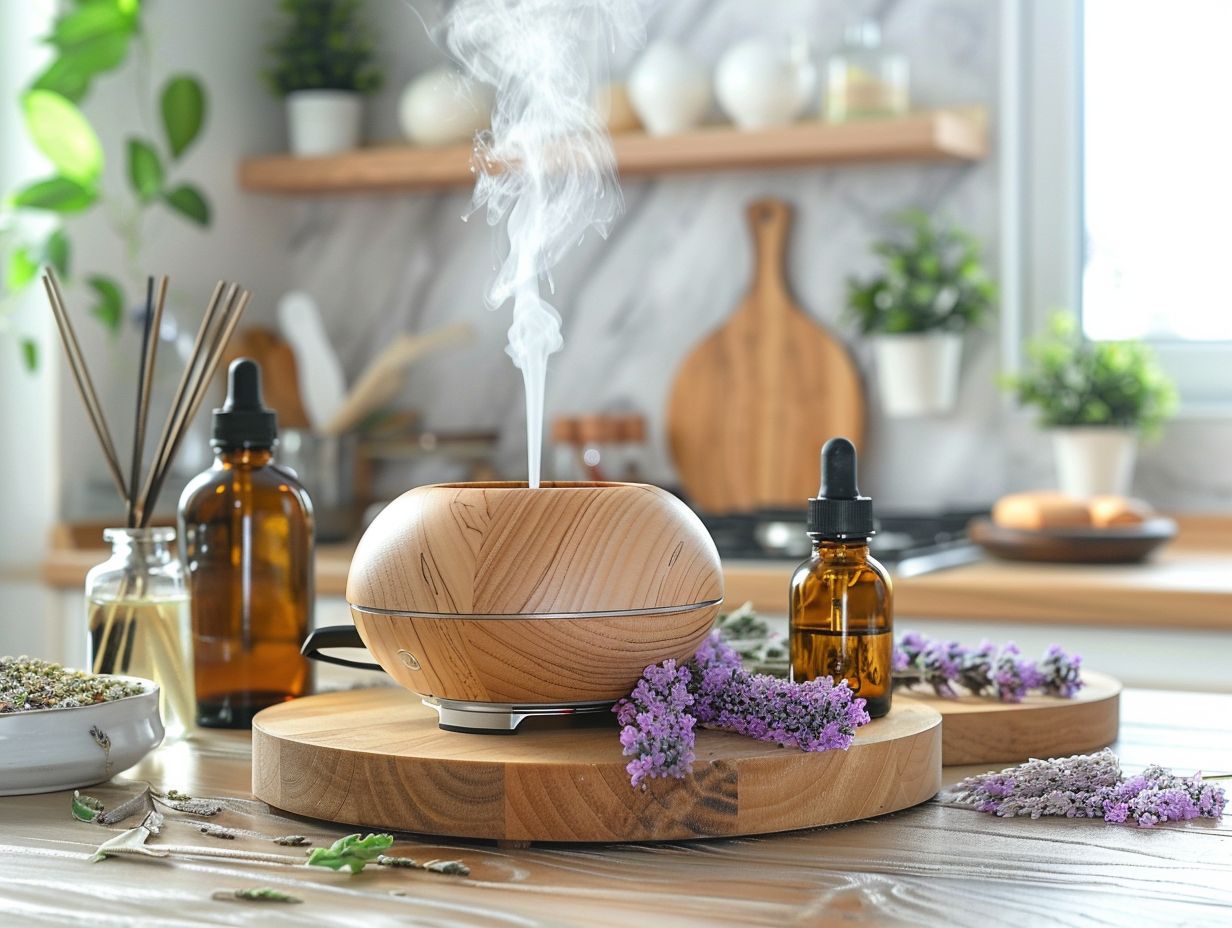
When combining aromatherapy with traditional healthcare, patients may experience a more well-rounded approach to healing. This integration allows for a holistic perspective that addresses physical, mental, and emotional aspects of health. It’s essential to consult with your healthcare provider to ensure that the use of essential oils and aromatherapy blends aligns with your current treatment plan. By collaborating with professionals versed in both conventional medicine and holistic practices, individuals can receive personalized care that maximizes the benefits of each approach.
Frequently Asked Questions
What is the Purpose of Aromatherapy?
Aromatherapy is the use of essential oils to promote physical and emotional well-being. It involves inhaling or applying these oils to the skin in order to achieve specific therapeutic effects.
How does Aromatherapy work?
Aromatherapy works by stimulating the olfactory system, which is connected to the limbic system in the brain. The limbic system controls emotions and memories, which is why aromatherapy can have a powerful effect on our mood and overall well-being.
What are the benefits of Aromatherapy?
Aromatherapy can provide a wide range of benefits, including relaxation, stress relief, improved sleep, pain relief, improved digestion, and increased energy. It can also help boost the immune system and promote healthier skin.
Which essential oils are commonly used in Aromatherapy?
Some commonly used essential oils in aromatherapy include lavender, peppermint, eucalyptus, tea tree, and lemon. Each oil has its own unique properties and can be used for different purposes.
Can Aromatherapy be used as a substitute for traditional medicine?
Aromatherapy should not be used as a substitute for traditional medicine, but rather as a complementary therapy. It can be used alongside other treatments to enhance their effectiveness and promote overall wellness.
Is Aromatherapy safe?
When used properly and with caution, aromatherapy is generally safe for most people. However, it is important to consult with a trained aromatherapist or healthcare professional before using essential oils, especially if you have any underlying health conditions.

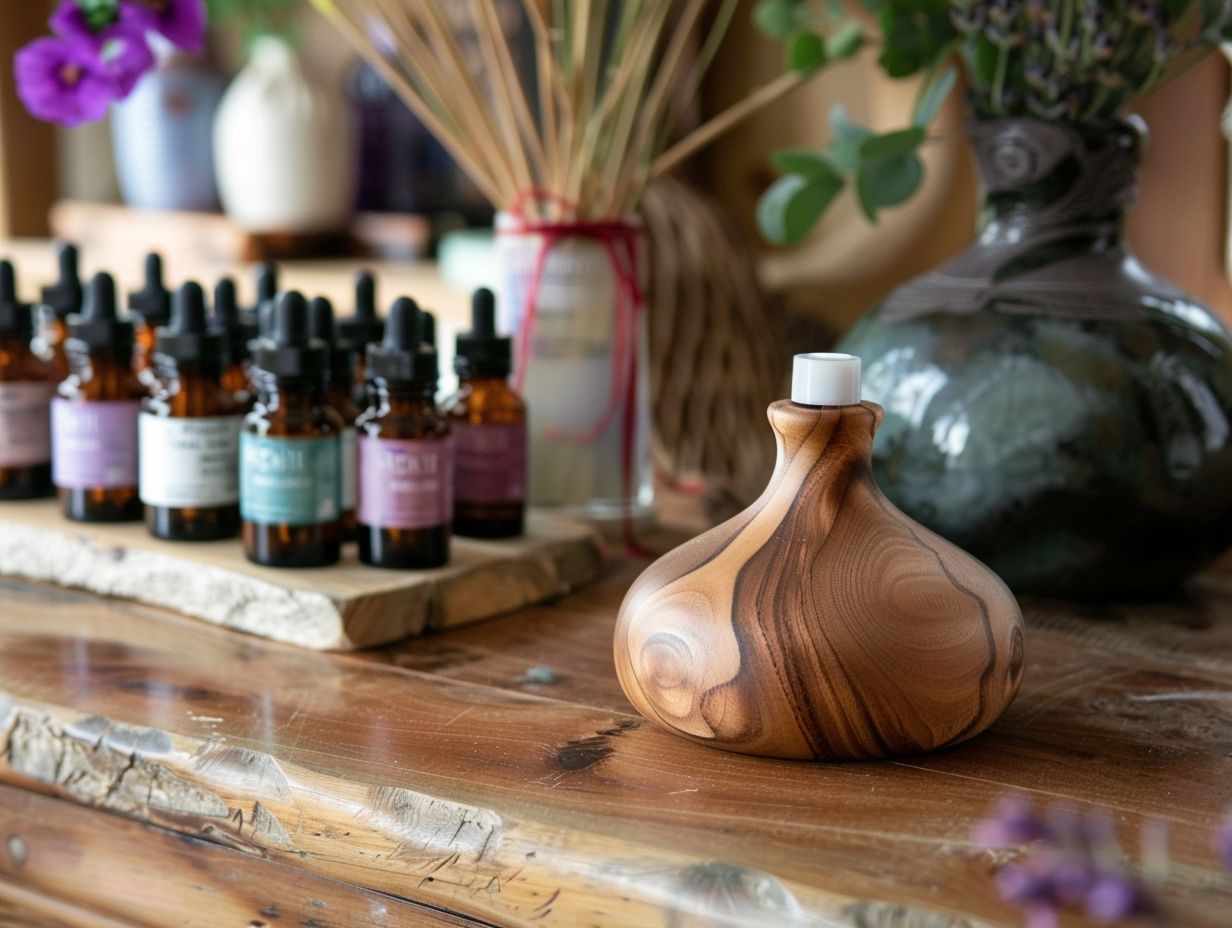
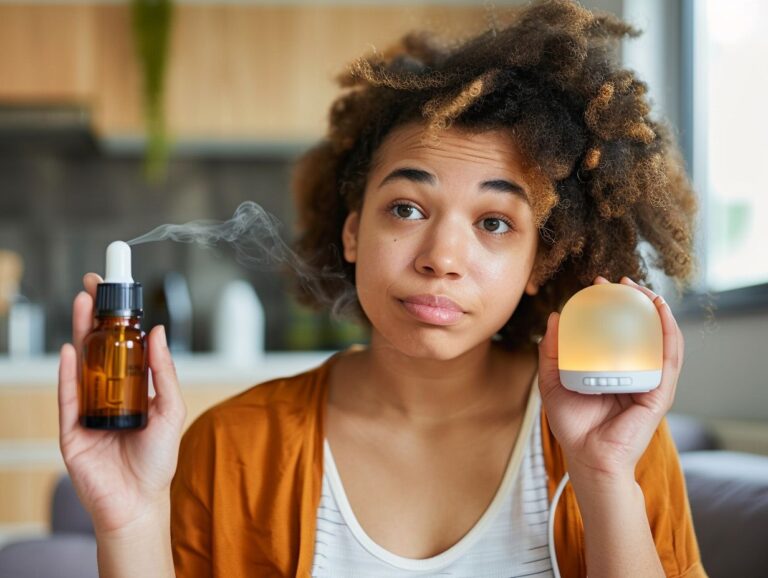
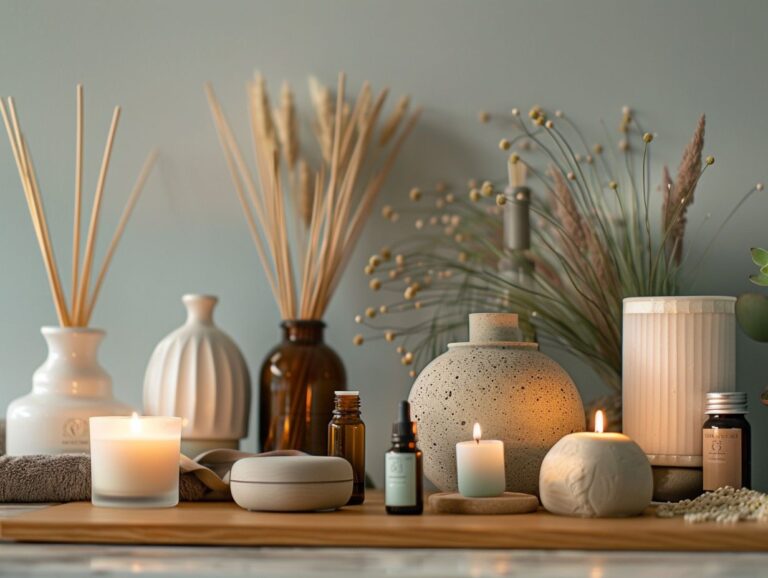
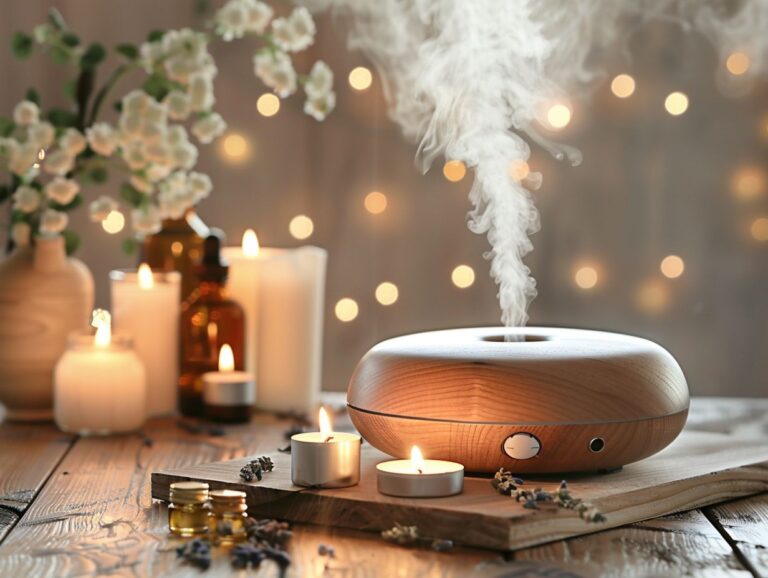
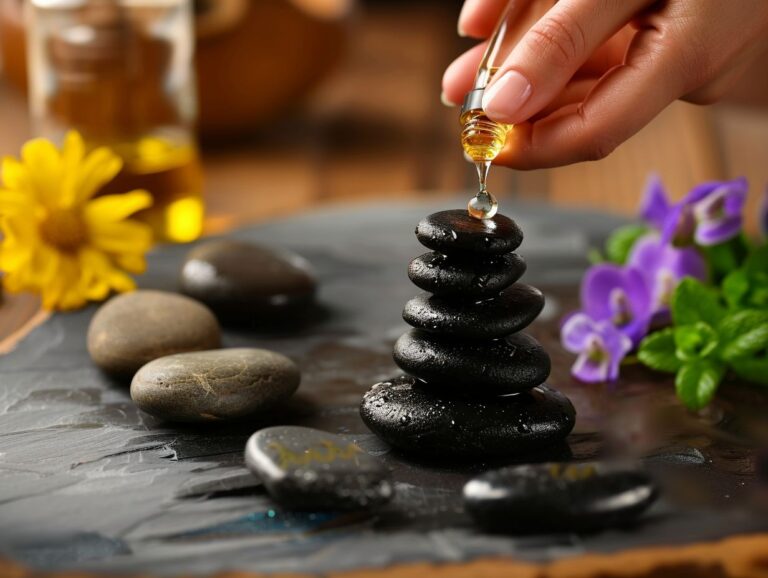

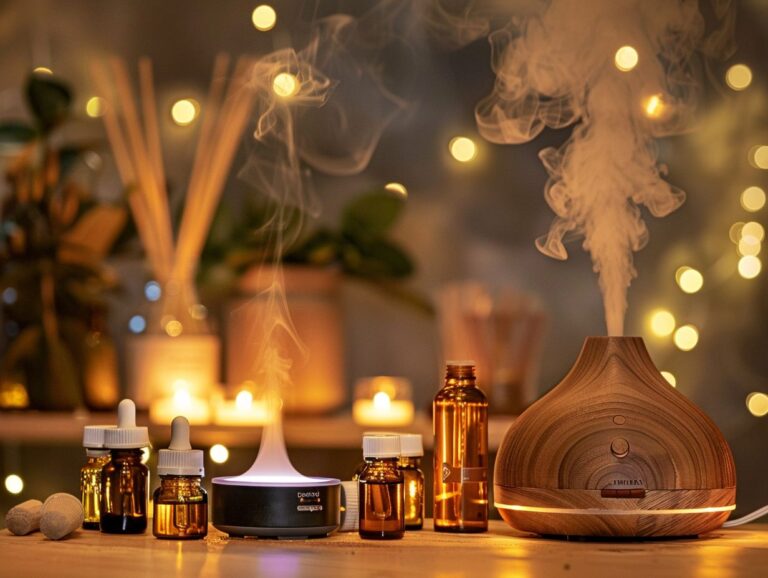
3 Comments